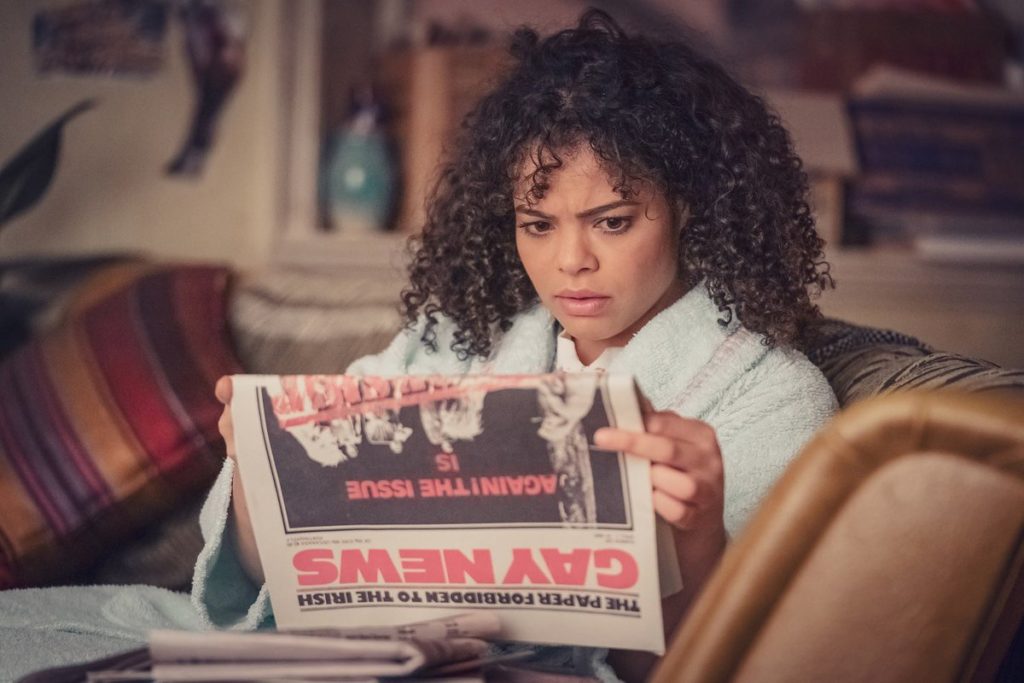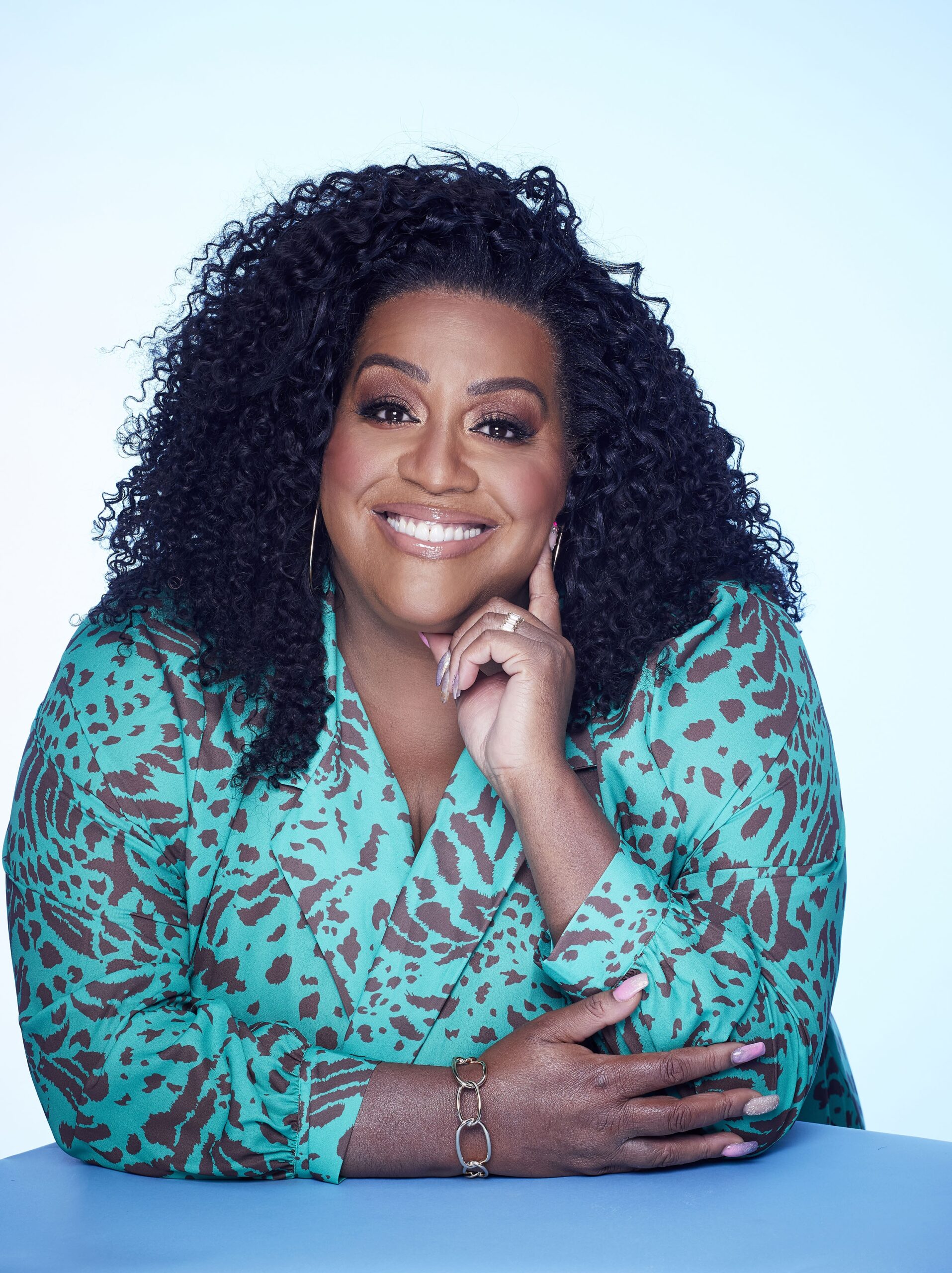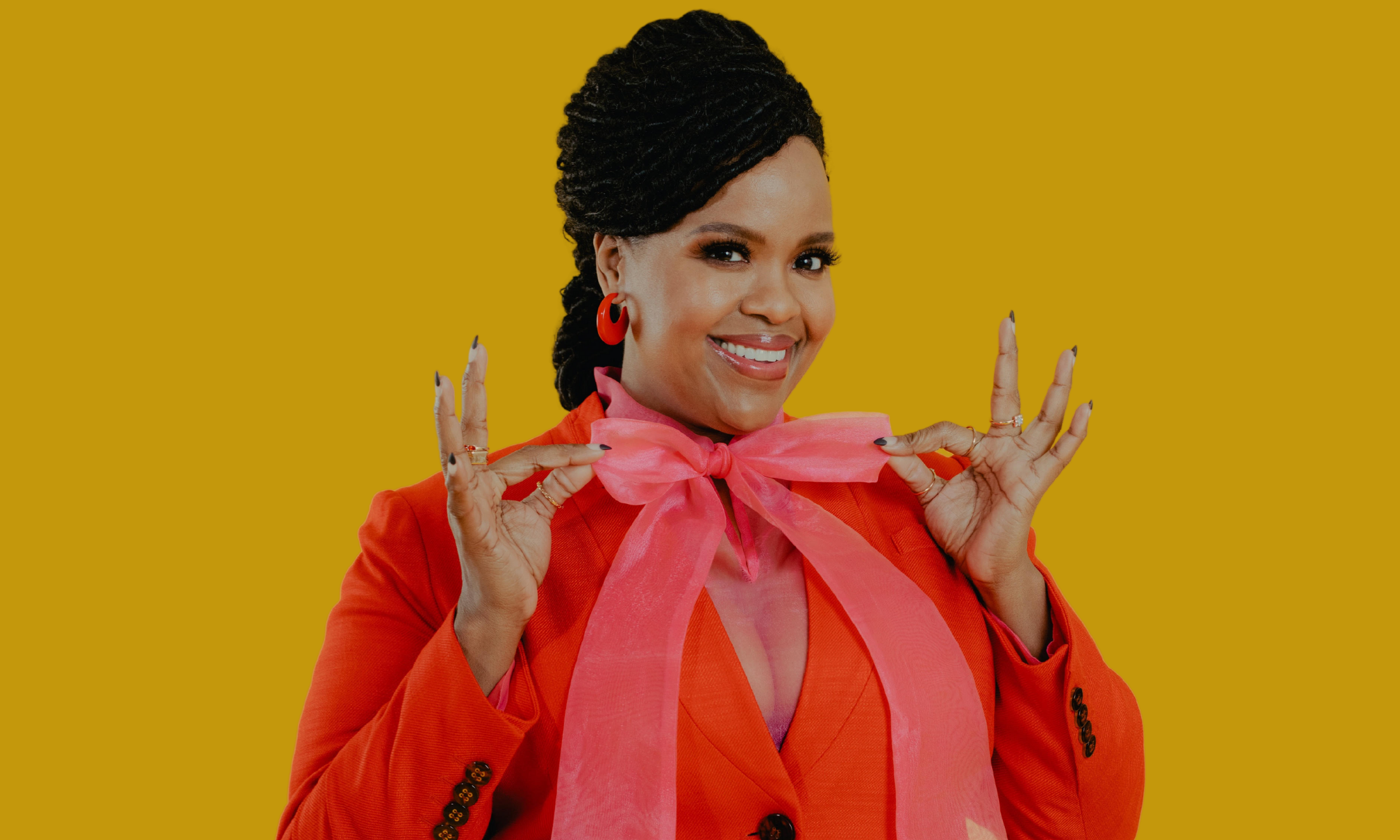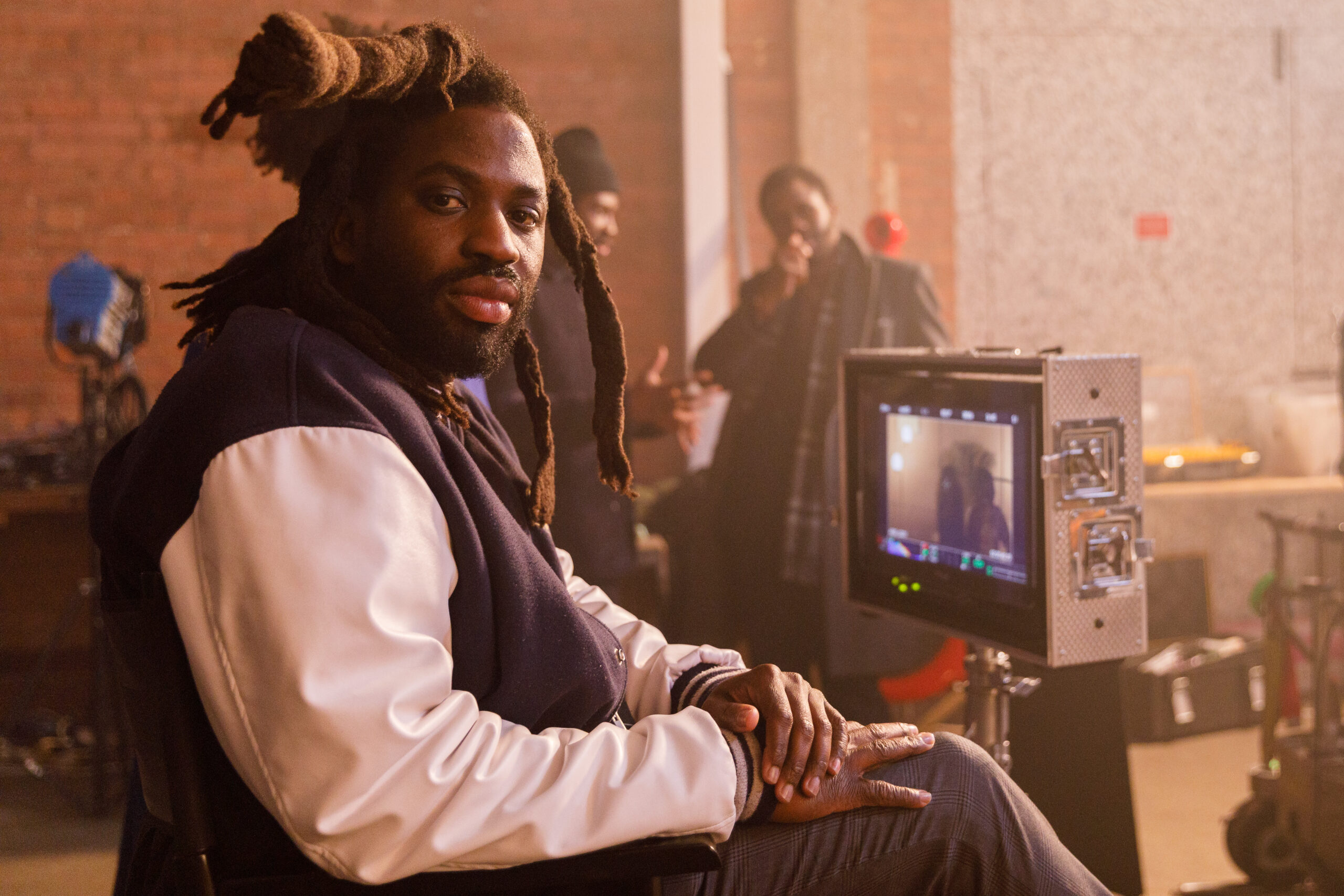
Courtesy of Channel 4
It’s a Sin’s Jill is almost a modern mammy… almost
I love the show, I love her character, but I think she deserved a little more depth. There I said it.
Kemi Alemoru
27 Jan 2021
It’s a Sin feels like Channel 4 in its glory days. From the mind of Russell T Davies who once brought us the boundary-breaking LGBT drama Queer as Folk comes an emotional five-part series that picks at the scab of another shamefully handled British epidemic: the AIDS crisis in the 1980s. It is bold and achingly rare.
While you grow to love each of the characters, even though some (namely Thatcher-voting Ritchie) are richly flawed, there is one character that stands out. Perhaps because she is so saccharine there are no shortcomings to be found. All hail Jill, who is part-Mary Seacole part-patron saint of London gay men. Throughout the show, we see her research the disease, spread awareness to her gay friends, volunteer her time to offer support to the increasingly scared community and hold the hands of dying men at a time when the heterosexual community either turned a blind eye or treated them as social pariahs.
But by the fifth episode of It’s a Sin, something didn’t feel quite right about Jill. While Lydia West did a stellar job, it’s hard not to feel like Jill’s only role is to take up a position of servitude. As such an impressive campaigner and confidant there are barely any hints to how she became the powerful force that she is.
“Writers take heed not to stumble into tired tropes in a show that is otherwise exceptional, empathetic, and an example of how representation matters”
We learn why other characters become defiant, or even how they become ignorant, but beyond a job in the theatre and a brief scene with her tolerant parents, Jill has no other desires, quirks, or personal battles outside of the Pink Palace clique. Beyond super subtle nods: what relationships, battles or triumphs made her into the brilliant Jill that everybody wants in their life? For example, we never see her have a romance of her own. Was she celibate for a decade? If so, then why? We can only guess that the reason why she is led with love is down to her upbringing, rather than the fear and self-loathing Ritchie is prone to, given his parent’s shortcomings. But for all her heroism, and despite being central to the plot, she feels fairly two-dimensional.
It’s a Sin triumphs elsewhere. In comparison, Ritchie and Roscoe’s parents are afforded more nuance than Jill and they have a lot less screen time. Richie’s mother, portrayed by Keeley Hawes, is docile and sweet and often shields him from his father’s criticisms. Later you realise why he’s distanced himself from her. It emerges that she is cold and callous due to her own awful upbringing (“Do your remember [your grandfather]? He was a terrible man”), and that his dad is soft and just struggles to show his concern because… toxic masculinity.
The richness of Roscoe is that you can see how his culture led to him being proud and defiant. Despite some terrible Yoruba, there is care taken to weave a complex representation of a young, aspirational gay Nigerian man. A character arc. We love to see it! But we don’t see that for Jill who steadily remains the barometer for moral decency throughout. If you look up good egg in the dictionary, you will see a picture of Jill. Even when she loses her temper it’s for a worthy cause.
There is an unfortunate history of characters like Jill in pop culture. Film and television are full of two-dimensional Black characters whose only use is to save white protagonists. They’ve been coined magical negros and mammies. The trope sees Black characters selflessly helping white people and also possessing special insight that other characters don’t have (that’s the ‘magical’ bit, think Whoopi Goldberg in Ghost, or the cook in The Shining). Jill’s intuition leads her to take the epidemic seriously and understand it before anyone else.

It is no doubt unintentional as Jill is actually based on a real-life friend of It’s a Sin’s creator. He has a deep respect for her and so his choice to cast her as Black is likely a positive one. In fact, the white woman who plays Jill’s mum in the show is the real Jill (which is why it’s even more perplexing that she is robbed of depth because she could consult on the richness of her existence).
Recently there has been a fresh wave of dialogue around colour-blind casting when striving for representation on film. Sometimes in making characters a certain race to beef up the diversity of the cast, there are oddities when the historical representation of that race on-screen isn’t otherwise taken into account. That’s why it feels off in Normal People when Marianne’s boyfriend, played by a Portuguese-Indian actor, is defending Nazis. Is this the right treatment of this character? There could always be a little more thought on how to adapt them, to nod to (not ignore) their likely life experience as a person of colour, and use that to breathe life into their depiction.
As viewers note, there is a special relationship between non-homophobic cis women and gay men. Many have tweeted about the Jills in their lives that performed vital roles as friends in school and at work, for example. You could argue that she is a heterosexual woman and this is a show about AIDS and therefore she doesn’t need to be at the centre of it. But she definitely already is, so I think it’s fair to express that I’d like to get to know her.
One reading is that Jill is a helpful plot device to make heterosexual women feel involved within It’s a Sin, despite its explicitly queer gaze. But there’s an equally likely view that Jill is a blueprint for allyship. Russell T Davis has spoken about wishing he could include the big lesbian allyship and collectivism that was happening at the time but he didn’t have enough episodes to go in-depth. However, in lieu of this, there is a cis woman playing a vital role in a crisis showcasing women’s role in the epidemic.
This is not a drag of It’s a Sin or of Jill. I love the show and her character. Both have made me feel more in the last week than I have experienced in the last year (I’m numb, wbu?!). Her character is so central and Lydia West’s portrayal of it is so beautiful that it feels like a misstep that we don’t really get to know her. It’s just a reminder for writers to take heed not to stumble into tired tropes in shows that are otherwise exceptional, empathetic and an example of how representation matters.
Additional reporting and research by Niellah Arboine









